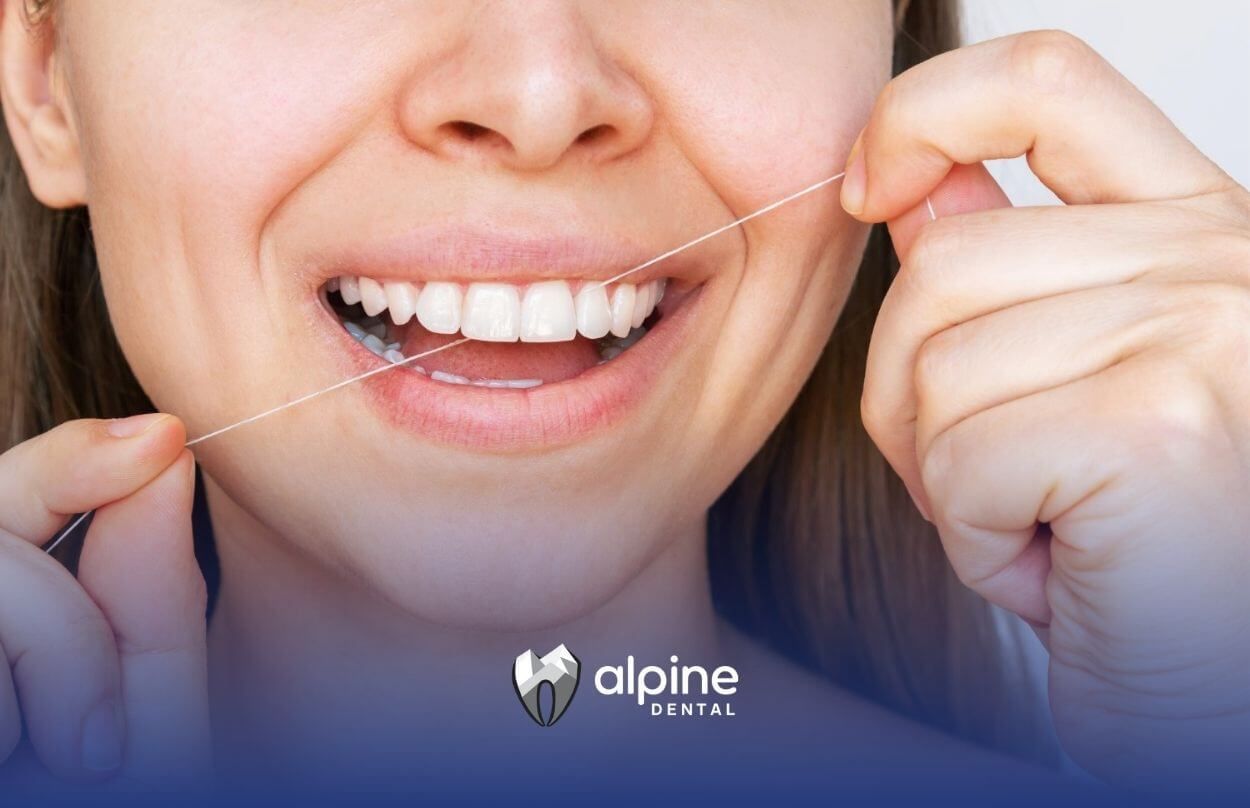Can Stress and Anxiety Affect Your Teeth? What You Need to Know
We often talk about stress and anxiety in terms of mental and emotional health—but did you know they can also take a toll on your oral health? From teeth grinding to gum disease, the effects of stress and anxiety can show up in your mouth in ways you might not expect.
In today’s fast-paced world, more and more people are feeling overwhelmed by daily pressures. While occasional stress is a normal part of life, chronic stress and anxiety can wreak havoc on your body—including your teeth, gums, and jaw. This blog will dive into how stress and anxiety affect your oral health, what symptoms to watch for, and what you can do to protect your smile.
Understanding the Link Between Stress, Anxiety, and Oral Health
Stress is your body’s natural response to a challenge or threat. Anxiety is a more persistent state of worry, often without a specific cause. Both conditions trigger physiological reactions—like increased cortisol levels and muscle tension—that can negatively affect different parts of your body, including your mouth.
Your oral health is not separate from your mental health. The two are deeply interconnected, and what affects one can impact the other.
Stress and Anxiety Effects on Oral Health
1. Teeth Grinding and Jaw Clenching (Bruxism)
What It Is:
Bruxism is the habitual grinding or clenching of teeth, often during sleep or periods of high stress.
Why It Happens:
Stress and anxiety can cause your body to tense up, including the muscles in your face and jaw. This tension often leads to unconscious grinding or clenching.
Symptoms:
- Worn-down teeth
- Jaw pain or stiffness
- Headaches (especially in the morning)
- Tooth sensitivity
- Cracked or chipped teeth
Long-Term Effects:
Over time, bruxism can wear down enamel, cause tooth fractures, and even lead to temporomandibular joint (TMJ) disorders.
2. TMJ Disorders
What It Is:
TMJ disorders affect the joints and muscles that control jaw movement. These issues can be painful and limit your ability to chew, speak, or open your mouth comfortably.
Link to Stress:
Stress-related jaw clenching and muscle tension often contribute to TMJ disorders.
Symptoms:
- Clicking or popping sounds when moving your jaw
- Pain in the jaw, ears, or face
- Difficulty opening or closing your mouth
- Headaches or neck pain
3. Canker Sores and Mouth Ulcers
What They Are:
Small, painful sores that form inside your mouth.
Connection to Stress:
Stress can weaken your immune system, making you more prone to mouth sores. While the exact cause of canker sores isn’t fully understood, emotional stress is a known trigger.
Symptoms:
- White or yellow ulcers surrounded by red borders
- Pain when eating, drinking, or speaking
- Discomfort lasting up to two weeks
4. Gum Disease (Gingivitis and Periodontitis)
What It Is:
Gum disease is a bacterial infection caused by plaque buildup on teeth. It ranges from mild gingivitis to severe periodontitis.
Stress Connection:
Chronic stress weakens your immune system and increases inflammation throughout the body—including your gums. This can make it harder to fight off infections like gum disease.
Symptoms:
- Swollen or bleeding gums
- Bad breath
- Gum recession
- Loose teeth in advanced cases
Additional Risk:
People under stress may also neglect oral hygiene routines, skip dental visits, or eat unhealthy diets—all of which contribute to gum disease.
5. Dry Mouth (Xerostomia)
What It Is:
A condition where your mouth doesn’t produce enough saliva.
Stress Connection:
Anxiety and stress can reduce saliva production, either directly or as a side effect of medications like antidepressants and anti-anxiety drugs.
Why It Matters:
Saliva helps protect your teeth by neutralizing acids, washing away food particles, and preventing decay. A dry mouth increases the risk of:
- Tooth decay
- Bad breath
- Gum irritation
6. Neglected Oral Hygiene
When people are overwhelmed with anxiety or depression, self-care—including brushing and flossing—can fall by the wayside. This neglect can quickly lead to:
- Plaque buildup
- Tooth decay
- Gum inflammation
- Bad breath
Additionally, stress can cause people to reach for comfort foods or sugary snacks, which contribute to tooth decay.
7. Nail Biting and Chewing on Objects
What It Is:
A nervous habit where people chew on nails, pens, or other objects.
Oral Impact:
- Chipped or cracked teeth
- Damaged dental restorations
- Increased risk of infection or gum injury
How to Protect Your Teeth During Stressful Times
1. Practice Good Oral Hygiene
Stick to a routine, even when you’re feeling overwhelmed:
- Brush twice a day with fluoride toothpaste
- Floss daily
- Use an antimicrobial mouthwash
2. Wear a Mouthguard
If you grind your teeth at night, a custom nightguard can protect your enamel and relieve jaw pressure.
3. Manage Your Stress
Adopt healthy coping mechanisms:
- Exercise regularly
- Try deep breathing or meditation
- Maintain a regular sleep schedule
- Talk to a mental health professional
4. Stay Hydrated
Drinking water throughout the day can combat dry mouth and help keep your mouth clean.
5. Eat a Balanced Diet
Choose foods that support oral health:
- Leafy greens
- Crunchy fruits and vegetables
- Dairy products
- Water over sugary drinks
6. Avoid Bad Habits
Try to break habits like nail biting, chewing on pens, or smoking, all of which are common during stressful periods and harmful to oral health.
7. Visit the Dentist Regularly
Routine dental visits are crucial for catching problems early—especially when you’re under stress. Let your dentist know if you’re experiencing symptoms like jaw pain, dry mouth, or mouth sores.
Stress, Mental Health, and Dental Care: A Two-Way Street
Just as stress can impact your dental health, poor oral health can increase your stress and anxiety levels. Constant pain, embarrassment over appearance, or worrying about dental bills can create a vicious cycle. Addressing your mental and dental health together leads to better overall wellness.
If you're currently undergoing therapy or taking medications for anxiety or depression, talk to your healthcare provider about any oral side effects you may experience. Working as a team—doctor, dentist, and patient—can improve outcomes on all fronts.
When to See a Dentist
See a dentist promptly if you notice:
- Frequent headaches or jaw pain
- Worn or chipped teeth
- Bleeding gums
- Ongoing dry mouth
- Repeated mouth sores
- Pain when chewing or opening your mouth
These may be signs that stress and anxiety are affecting your oral health more than you realize.
The Bottom Line
So, can stress and anxiety affect your teeth? Absolutely.
Mental health challenges don’t just weigh on your mind—they also show up in your mouth. From teeth grinding and jaw pain to gum disease and neglected hygiene, stress and anxiety can have wide-reaching effects on your oral health.
The good news is that awareness is the first step toward prevention. By managing your stress, practicing good oral hygiene, and seeking help when needed, you can protect both your mental and dental well-being.
If you're experiencing signs that stress may be impacting your smile, it’s time to talk to a dental professional. Alpine Dental is here to help you regain comfort and confidence with comprehensive care tailored to your needs. Your peace of mind—and your oral health—matter to us.
Frequently Asked Questions
Can stress cause tooth pain even if there’s no cavity?
Yes, stress-related jaw clenching or teeth grinding can cause pain or sensitivity without any signs of decay. It’s best to see a dentist to rule out other causes.
Does anxiety affect gum health?
Yes. Chronic anxiety can weaken your immune system and increase inflammation, making you more susceptible to gum infections like gingivitis and periodontitis.
What’s the best way to stop teeth grinding caused by stress?
Wearing a nightguard, managing stress through relaxation techniques, and consulting a dentist for treatment options are effective ways to address grinding caused by stress.
Sources:
- https://medlineplus.gov/ency/article/003211.htm
- https://www.nimh.nih.gov/health/topics/anxiety-disorders
- https://pmc.ncbi.nlm.nih.gov/articles/PMC8859414/
- https://www.mayoclinic.org/diseases-conditions/tmj/symptoms-causes/syc-20350941
- https://www.mayoclinic.org/diseases-conditions/canker-sore/symptoms-causes/syc-20370615
- https://www.colgate.com/en-us/oral-health/dry-mouth/anxiety-and-dry-mouth-link




